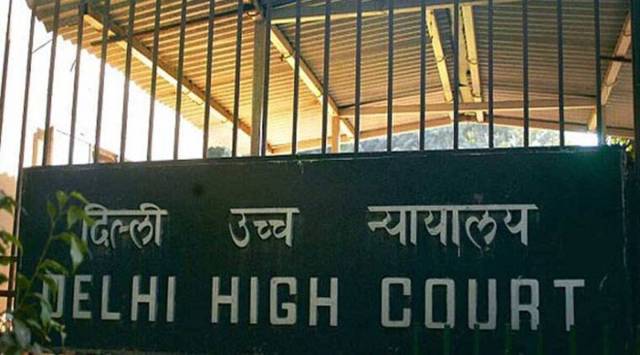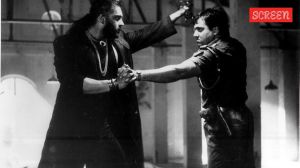Delhi HC to decide if films inspired by true events can be injuncted at all
Granting time to the makers to file their response to the application seeking stay on the release of the film, Faraazm the HC listed the matter on February 1, and the film is slated for release on February 3
 Granting time to the makers to file their response to the application seeking stay on the release of the film, the HC listed the matter on February 1. (Express Photo)
Granting time to the makers to file their response to the application seeking stay on the release of the film, the HC listed the matter on February 1. (Express Photo) The Delhi High Court on Tuesday sought response from the makers of film “Faraaz” while taking up a plea moved by the mothers of two girls who died in the 2016 Dhaka terror attack at a cafe, which sought stay on the film’s release.
A division bench of Justice Siddharth Mridul and Justice Talwant Singh asked the counsel for the mothers to establish in law that the release of the film is violating their privacy, which needs to be protected, and “whether films inspired by true events can be injuncted at all”.
“You have to inform us what is your right in law to seek injunction on release of the film. You’ll have to be more direct. If we don’t injunct, the appeal and the suit itself becomes infructuous,” the court told senior advocate Akhil Sibal, who represents the mothers. The court also said an order of injunction for a commercial film cannot be passed lightly.
Granting time to the makers to file their response to the application seeking stay on the release of the film, the HC listed the matter on February 1, and the film is slated for release on February 3. The mothers have challenged an order of a single judge bench passed in October last year, which refused to stay the film’s release. On the last hearing, the court had asked the parties to sit together and resolve the issue.
When the matter was called earlier in the day, the HC asked advocate Sheyl Trehan whether the makers will consider dubbing the names of the girls and their families as sought by the two mothers. When the matter was called again in the post-lunch session, Trehan said “without prejudice to legal arguments” her clients have agreed to change the names of the mothers, however with respect to the girls it would be difficult since the whole sound mixing of the film will have to be done again.
Sibal argued that the single judge in its order said that right to privacy is a right in personam and is not inheritable by the mothers or legal heirs of the deceased persons. He said that the judge also held that the mothers had not agitated the violation of their right to privacy before the court. Sibal drew the court’s attention to the matter filed before the single judge which said that the mothers had the right to safeguard the privacy of their family as well as of the deceased persons. He said that the mothers had argued before the single judge that life of their daughters is a private personal affair and it cannot be appropriated by the makers for making the film, arguing that the same had been pleaded.
“It was wrongly recorded that the same was not pleaded. And then it was per say held that there would be no right to privacy with respect to the mothers,” Sibal said.
He further argued that if the story starts at the cafe–then the same is all fictional as there is no personal record of what happened inside the cafe except the manner of death and that there was a disclaimer issued by the maker that the “elements contained in the film are pure works of fiction and no identification of any animal, persons, places….is intended not should be interpreted”. He said that if the film is fiction, then it should be fictionalised and any trace of the girls or their families should be removed.
He said the public does not really read the disclaimer and the film as a medium is very effective. Therefore his clients were seeking the makers to “distinguish it at this stage and distance it from the real characters and events that took place”. He said that contrary to the position taken by the makers before the single judge wherein they said that neither names of the girls, their identity, nor their picture will be disclosed, there are “thinly disguised names” used in the film and that there are scenes where faces of the girls are displayed during a protest.
On the issue of protests being displayed, Trehan submitted that a portion of a documentary has been used in the film that depicts protests after the incident wherein a banner carried the picture of the two girls, which has been removed from the film. On protests, the bench said: “Protests are common place,” to which Sibal said that why should it be in the movie. On this, the bench questioned: “Why not? The Supreme Court has quipped in a judgment that if you don’t like a film, don’t watch it. But your case is that your privacy is being violated and it needs to be protected.”







